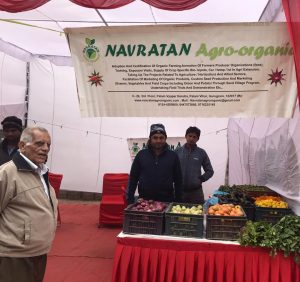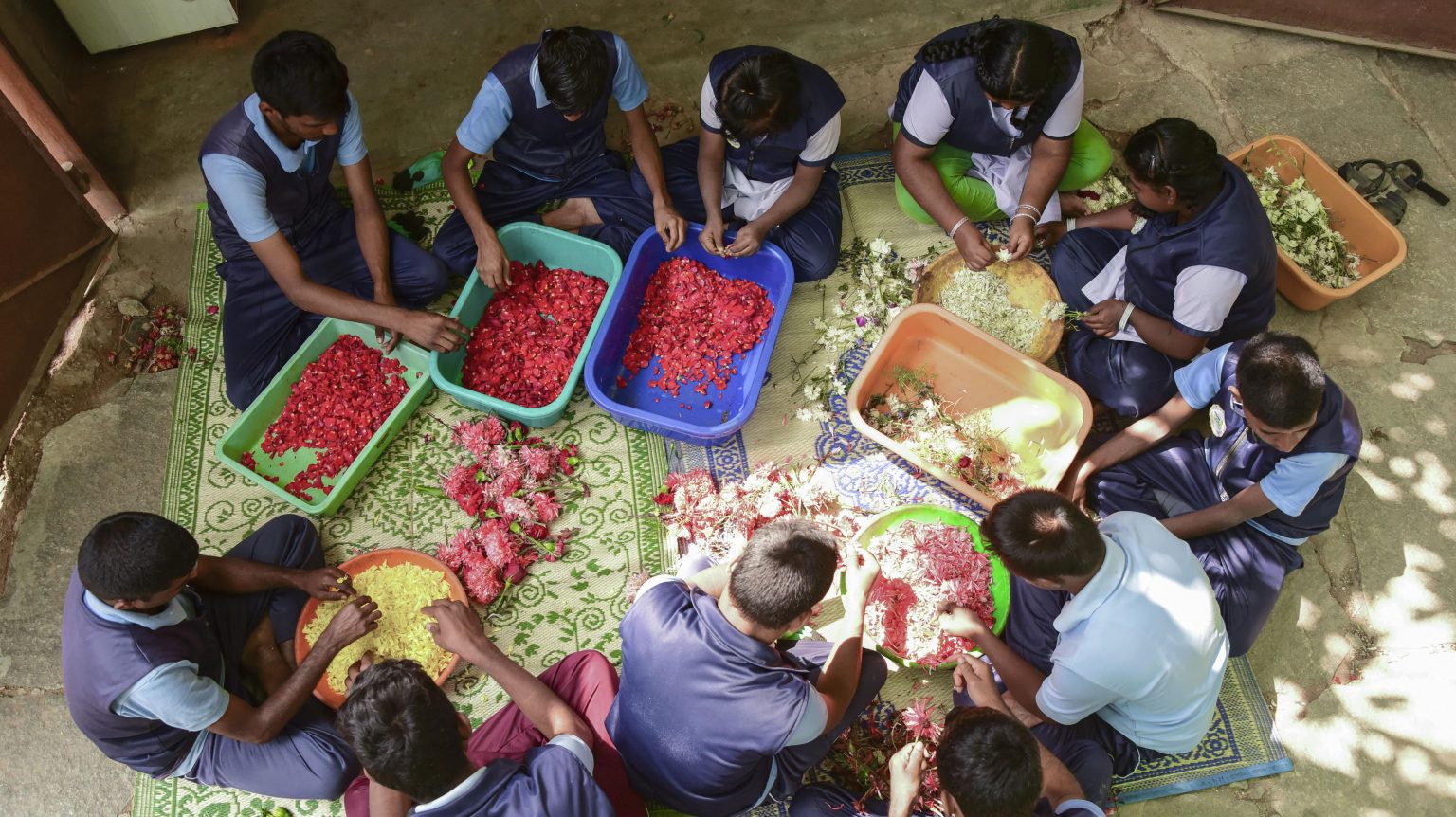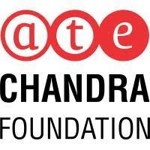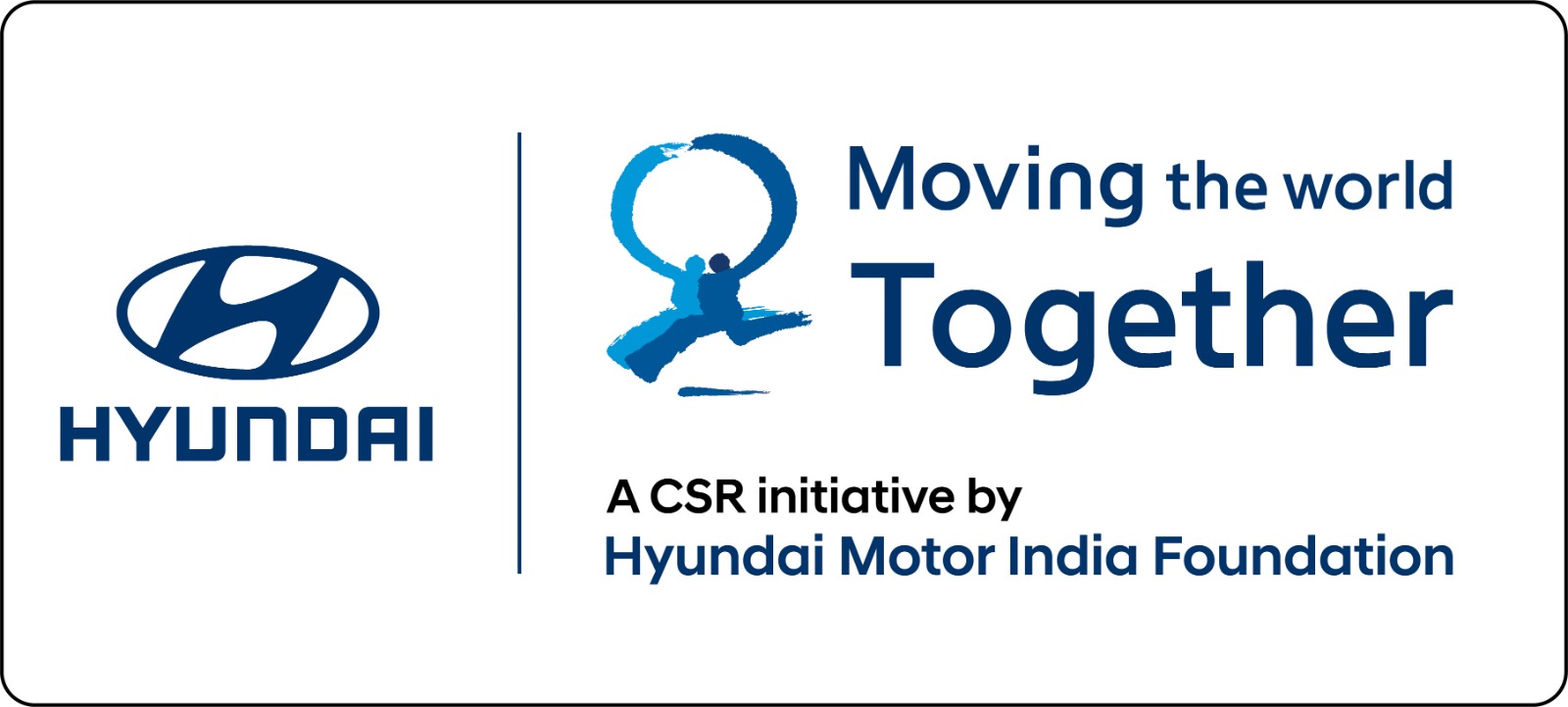Disability is a matter of perception. Disabled people are not the ones, who are not ‘normal’ as per societal parameters. But real disability is not being able to find joy in life. My entire perception about disability changed since, when I visited a Green Skilling centre at Chetna – a day care centre run by Richmond Fellowship Society (RFS) India, Bangalore to do an independent evaluation of the project.
The Green Skilling programme trains people with disabilities to create exquisite products, such as bags, jewellery, mats and colours for Holi and Rangoli. The products are made out of natural discarded materials like flower petals. Working with colours, inmates of the centre have discovered joy in life. Would they be still considered disabled? I would rather call them heroes, who have found the strength to endure life, in spite of overwhelming obstacles.

Anand Kumar (name changed) for instance suffers from mental retardation. He lives in a rented house with his mother. His father is no more and his mother is quite old. He is supporting his mother with the stipend he receives from this program. When he came to center, he was introduced to horticulture and then moved to Green Skilling. He is earning a regular income from making flower sand and Holi colours. Now he is working on this initiative full-time and has taken a very keen interest in doing this work and learning newer tasks.

How can I forget Shreeamma (name changed), an old lady suffering from epilepsy who, seemed busy sorting flowers? Before joining the Green Skilling project, she used to be homebound, helping out with small household chores. But with memory retention problems, she was unable to finish all her tasks. Now with regular communication and training, Shreeamma has slowly started interacting with others and earning a regular income. Like Shreeamma, between 2018 and 2019, a total of 415 beneficiaries have been targeted for income enhancement, and rehabilitation, primarily through flower recycling.
“Our focus is to use craft-based skilling as a means to empower disadvantaged groups with no formal access to education or skills to be able to earn a livelihood. Craftizen customizes skill development based on several factors including profile of the beneficiary, availability of raw material, product appeal in local markets and urban consumers,” said Mayura Balasubramanian, founder & CEO, Craftizen Foundation, a Bengaluru-based not-for-profit that is implementing the project. The programme has been supported by Accenture, managed by OneStage.
Dr Lata Hemachand, secretary and CEO of RFS felt that the ‘flower therapy’ has had a remarkable positive impact on the beneficiaries. “Their overall health has improved. They do not fall sick as frequently as they used to. They can independently take care of their grooming and personal hygiene. Their social skills have improved, as they now have a higher self-worth; more confidence, and enjoy working in teams. They can get very creative using colours,” she told me.
Besides, this, the project has been beneficial for the environment, as it also promotes waste recycling. The discarded flowers, collected from temples, marriage halls and other community gatherings get a new lease of life. A team from the Green Skilling centre goes around and collects used flowers from various spots. The inmates are taught to de-petal the flowers, and group them according to the colors. Each flower gives a different colour.
My visit lasted for two days, but it was an eye-opener for me. I am confident that this project will be a huge success if replicated on a larger scale. I am very thankful to green skilling team and the beneficiaries at the Chetna centre for providing this enriching experience. I now know the true meaning of, ‘we are not disabled; we are differently abled’.
Search
Categories
Recent Posts
- A brief visit to a project site in Gurugram
- How was OneStage born?
- ‘The plight of people moved me, and the heroic efforts of frontline workers inspired me to support COVID Relief work’
- 7 ways to take care of your Mental Health during the pandemic
- 5 things you must keep in mind before forwarding information on COVID












.png)

.png)

